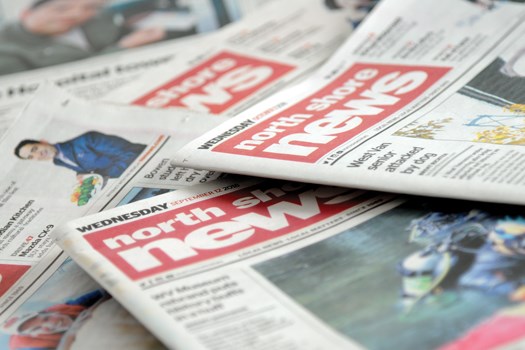Know any Latin? Probably not – it is a dead language, after all.
But there’s one phrase you may have at least heard of: caveat emptor.
It means, literally, “let the buyer beware.” It’s become a staple of contract law; in short, it means that someone buying something needs to learn about the nature of what they’re buying – that it does what it should and that the seller is actually allowed to sell it.
But in 2020, perhaps we should switch it up for caveat lector – let the reader beware.
That’s because the digital and social media revolutions make it more possible than ever for us as readers to be fooled – with our own habits used against us.
It used to be a very expensive enterprise to reach a mass audience. It took a massive investment in capital and staff to buy presses, radio stations, or TV licences, to run them and to distribute news to the public.
As a result, the craft of journalism – which began with pamphleteers and partisans spreading “news” that served their interests – had to become more neutral and more objective in order to gain as large an audience as possible.
Yes, the concept of objective journalism, high-minded as it sounds, was an economic decision.
But it had a benefit to the reader: credibility became an asset. Messing with the truth came with a major price tag, which made it too big of a risk to take for most publishers.

But now, when every person has the world’s biggest printing press and worldwide distribution in their hand, there’s no cost – and next to no risk – to publishing whatever someone wishes, and making it look like a legitimate news source.
And it goes well beyond that; the algorithms that rule our digital world can trap you in an echo-chamber of your own reading choices, keeping information from you that might otherwise broaden your horizons, give you context, or change your mind.
That means we, the reading public, must become our own fact-checkers and our own guides through the media landscape – caveat lector.
The first, and most important lesson: know your sources. Look for the name above the headline on your Facebook feed. Do you recognize it? If you don’t, proceed with caution, and look for sources you trust to corroborate what you’ve read.
Thankfully, there are tools that can help you with that. In fact, you’re reading one right now.
Whether you’re reading these words on a printed page, a laptop screen or scrolling on a phone, you’re reading them from a community news source – a trusted news source.
What makes you know we can be trusted? Because we still have skin in the game. We are often the only people in the communities we serve who are paid to tell its stories, week in and week out. Our credibility is our strongest asset, and we seek to protect it by reporting the news to the best of our abilities, and by holding ourselves accountable to our readers through bodies like the National NewsMedia Council (www.mediacouncil.ca for more).
So as you navigate this new digital world, take us along as your guide.
We won’t pretend to be your champion for truth; rather, we’ll help you become your own champion.
Tim Shoults is vice-president, content and audience development, of North Shore News’ parent company Glacier Media.
What are your thoughts? Send us a letter via email by clicking here or post a comment below.



